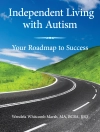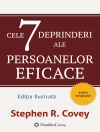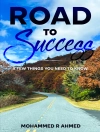In their world, neither static definitions of intelligence nor traditional ideas of training stand us in good stead. Rather, we need to reframe the question given what lies before us and come to terms with a different answer posited in different language.
This, then, are those who will thrive in the 21st Century:
- • They will blend multiple intelligences in a way that might be described as synthetic or even symphonic
- • They will be ambitious and focused without being self-obsessed
- • They will value asynchrony and even seek it out
- • They will use their own marginality to generate novel perspective and new work
- • They will exhibit a steadfast resilience in all phases of life
- • They will be measured by what they produce over the course of a lifetime, not by any static notion of capacity or quotient
In the fractured environment of the 21st century, true success will be unique and unexpected—the result of a creative response to complex, shifting challenges. So, how do we prepare? How do we educate ourselves and our children for life in 2050?
Sobre o autor
Dr. Terry Roberts is a former high school English teacher. He is practicing scholar of American Literature and Cultural Studies, with a strong penchant for the classics. He is fascinated by the social and intellectual power of dialogue to teach and to inspire. Terry is the lead author of several Paideia publications including The Power of Paideia Schools, The Paideia Classroom, and Teaching Thinking through Dialogue.
His debut novel, A Short Time to Stay Here, won the Willie Morris Award for Southern Fiction, and his second novel, That Bright Land, won the Thomas Wolfe Memorial Literary Award as well as the James Still Award for Writing about the Appalachian South. Both novels won the annual Sir Walter Raleigh Award for Fiction, given to the author of the best novel written by a North Carolinian. Born and raised near Weaverville, North Carolina, Roberts is the Director of the National Paideia Center and lives in Asheville, North Carolina with his wife, Lynn. He has three children: Jesse, Margaret, and Henry.












